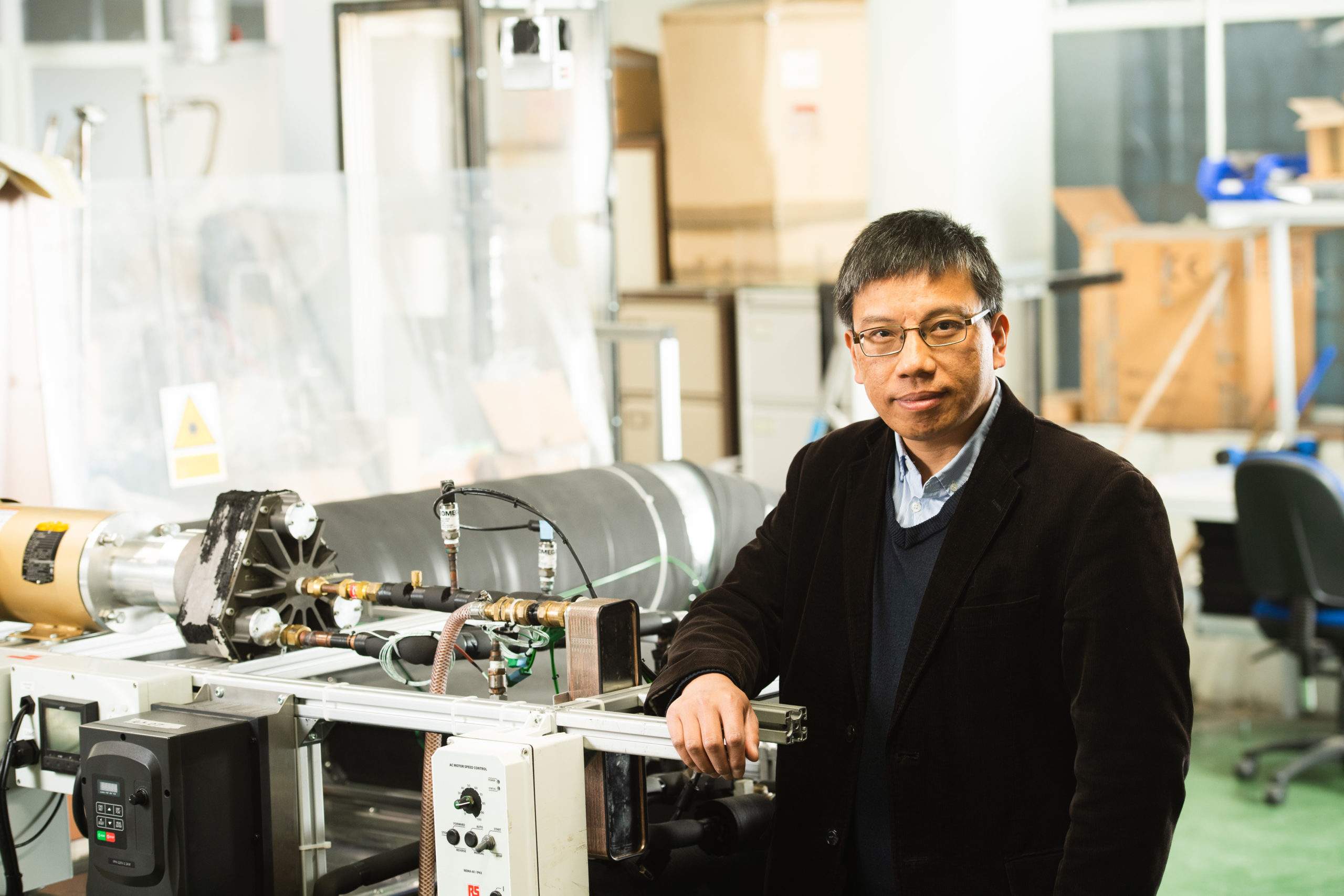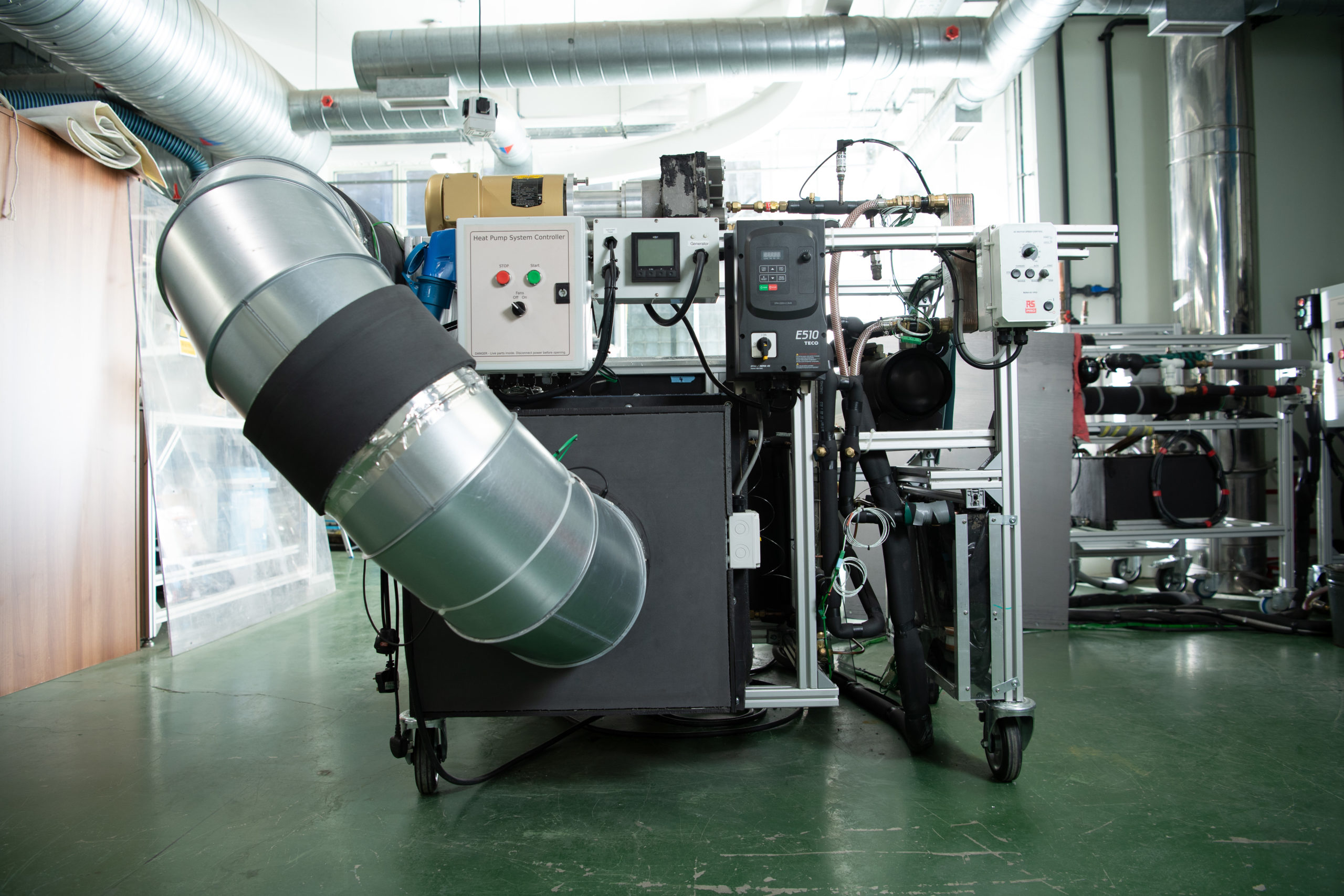
RESEARCHERS from the University of Glasgow have developed a new type of heat pump which the learning institution said could help households save on their energy bills and contribute towards net zero emissions goals.
The new ‘next generation’ heat pump looks to provide an ‘elegant and low-cost’ solution to the problems presented by current heat pumps, which the university said can have their heating capacity and energy efficiency impacted by cold weather – leading to high capital and operational costs, with ‘relatively low’ heat supply temperatures.
By integrating a small water tank and a coil of copper tube into the new heat pump, the university said that the water tank recovers some excess thermal energy produced during the pump’s operation and stores it as an additional heat source for later operation.
The recovered heat has a ‘much higher’ temperature than the outdoor air that provides the heat source, and it can be reused as a temporary heat source which ‘substantially’ reduces the pump’s power consumption.

For air source heat pump applications, the recovered heat stored in the water also allows the flexible heat pump to ‘run continuously’ during defrosting. The university said this makes it more ‘efficient and effective than the current generation of heat pumps, which interrupt the heat supply during defrosting while still consuming electricity’.
The researchers demonstrated the advantages of the new heat pump by building a working prototype using off-the-shelf components. ‘Thorough’ testing against current-generation heat pump designs showed their design to be around 3.7% more efficient than current designs with a relatively low heat supply temperature of 35°C.
Furthermore, when the supply temperature increases, so does the amount of energy recovered, improving the system’s efficiency and saving more power. The team’s analysis predicts that, after optimisation, it could be up to 10% more efficient than current products when the heat supply temperature increases to 65 °C.
Zhibin Yu, professor of Thermal Energy at the University of Glasgow’s James Watt School of Engineering, led the research and development of the flexible heat pump. He said, “We’re at a critical juncture in our global move towards net zero, where we need to start scaling up our low-carbon infrastructure quickly and effectively. That urgency is being particularly keenly felt at the moment, where energy prices are rising and many households are facing rapidly escalating bills.
“The advantages of the flexible heat pump against current heat pump products is analogous to the advantages of condensing boiler against the non-condensing boiler – both recover excess heat to greatly improve efficiency.
“Our flexible heat pump solves many of the problems with the current generation of heat pumps, making them capable of delivering improved performance while using less power. The cost of a small water tank heat storage is marginal, but the power saving is significant. It can be widely applied for all kinds of the heat pump applications. We believe that this could help drive improved take-up of heat pump technology in homes across the UK.
“Now that we have acquired a patent on the technology and proved the concept in laboratory, we’re keen to start working with manufacturers, energy suppliers and other partners to take the first steps towards putting these next-gen heat pumps into homes in Britain and around the world.”
The team have protected their invention with a PCT patent and are actively looking for ways to make the flexible heat pump technology commercially available in the near future, with collaborators being sought to take it forward. More information can be found by clicking here.









